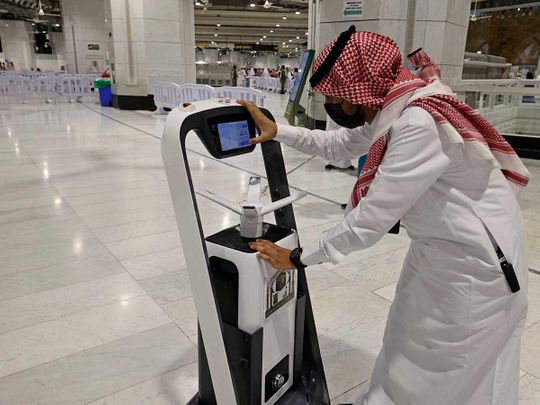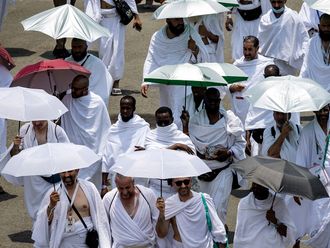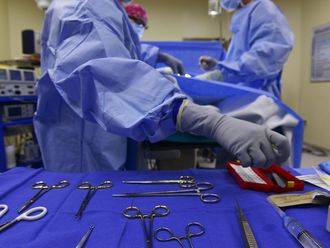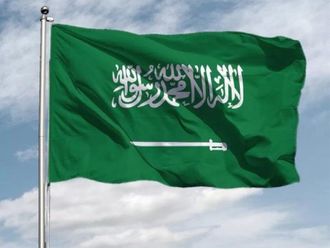
Dubai: The General Presidency of the Grand Mosque and Prophet’s Mosque has deployed its vast human resources and technology at the Grand Mosque to welcome worshippers during the upcoming Hajj season.
The General Presidency has mobilised more than 400 Saudi supervisors to oversee field operations carried out by a massive workforce of 4,000 male and female workers who will clean the Grand Mosque no less than 10 times a day, ensuring the cleanliness and hygiene of this sacred site.
Also read
- Eid Al Adha 2023: Saudi Arabia urges Muslims to sight Dhu Al Hijjah crescent moon tonight ahead of Hajj
- Saudi Arabia: Pilgrims told to prepare for intense heat and dust storms during Hajj in Mecca and Medina
- After long waits, new pilgrims prepare for Hajj, the first major one since COVID-19
- Saudi Arabia: Hajj pilgrim saved in Medina after her heart stopped beating for 8 minutes
They will also prepare and distribute 7,000 bottles of Zamzam water, with an additional 800 workers on hand to serve worshippers throughout the Grand Mosque.
Furthermore, 4,500 Zamzam water containers will be strategically placed around the Grand Mosque.
Mohammed Al Jabri, assistant to the General President for Service, Technical and Field Affairs at the Grand Mosque, said that the Agency for Services and Field Affairs’ preparation includes the deployment of 5,000 regular and nearly 3,000 electric vehicles, all coordinated through the “ TANAQOL” application. The agency’s plans also include regular sterilization efforts and overseeing vehicle operators’ duties, as well as providing guidance at the mosque’s entrances to streamline the influx of worshippers.
Al Jabri touted the technological approach to cleanliness: “Eleven smart sterilisation robots, capable of operating for up to 8 hours without human intervention, will be utilised. Pre-programmed to sterilise every nook and cranny of the Grand Mosque, these robots will be supported by 20 Biocare dry steam sterilisation devices for simultaneous air and surface sterilisation.
Additionally, fog sterilisers will be used in hard-to-reach areas, and 600 hands-free hand sanitisers will be installed.
Several teams will work to sterilise the Grand Mosque, its external courtyards, and toilets using over 70,000 litres of sterilisers, adhering to the highest international health standards for environmental prevention and epidemic control.”
Al Jabri also highlighted plans to manage the entrances and corridors of the Grand Mosque, organise worshippers’ entry and exit through doors and escalators, and direct them to designated prayer areas.
These efforts will be in accordance with the presidency’s approved operational plan, ensuring a safe and spiritually fulfilling Hajj for all.






